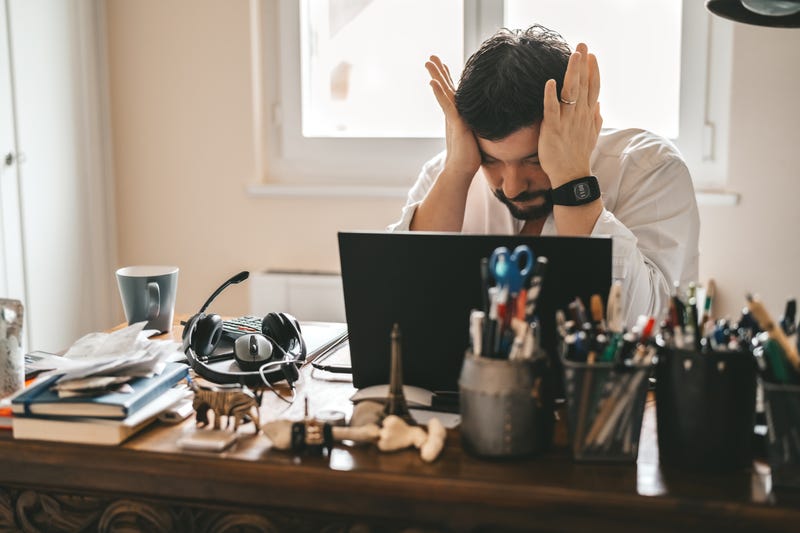
Do you ever feel like work from home is more like “live at work?”
During the pandemic, especially early on, some have questioned if employees are less productive at home -- wrapping up a little earlier, tending to other responsibilities or distractions, etc. -- but it turns out the opposite is true.
It might not be the absence of a watchful eye that’s impacting work, but burnout.
“There’s a continuous optimization of corporations stepping into people’s personal time and taking advantage of every second that they’ve got, so you’ve got meeting after meeting after meeting. If there’s anything causing a lot of heartburn is that they don’t have downtime just to refresh themselves,” Ernest Owens, assistant business professor at the University of St. Thomas, said.
Though some people, like introverts, may be thriving during the pandemic, there’s so much missing for others like small interactions, touch, or walks that contribute to a regular day. Owens said what may have amounted to a 6 1/2 hour day between lunch or trips to the coffee pot is now replaced with more meetings, preventing folks from having a little wind-down time and lengthening the workday.
Owens said the work is getting done, but with less human connection there can be loneliness.
“I think the firms are getting a good deal out of this because those people are being extremely efficient,” Owens said. “You can argue that they’re burning out faster because they don’t have that time to recharge or engage other people in a traditional way over a cup of coffee, or a doughnut, or a sandwich. I would say for a lot of firms productivity hasn’t gone down so much as people are not recharging.
“I don’t think the task is suffering. I think the employees are suffering.”
There’s also a financial impact for workers. Working at home with the thermostat higher and lights and computer on for longer and using the bathroom exclusively at home could increase bills.
“You hear more and more offices are shutting down, firms are shutting down space because they don’t have anybody in them,” Owens said. “The firms are cutting back their costs and taking advantage of it...all that cost has been shifted over to the employees and they’re not getting paycheck increases, they’re not getting raises. That money’s all going to the bottom line of the enterprise.”
It’s coming up on a year working at home and it’s realistic to assume it will continue for more months as more of the population gets vaccinated. Owens said he can foresee this kind of model -- and employees who thrive in it -- being valuable.
“There’s a real question we don’t have the answer to yet which is ‘What does this mean for the ‘workspace’ ‘after’ the pandemic,’” Owens said. “There’s a chance the workspace we’re talking about going back to will be reduced anyway. A different employee will be sought after. And there will be people in the traditional model, but it depends on what field they’re in and what they’re doing. It won’t be fully going back to what we used to be.”
